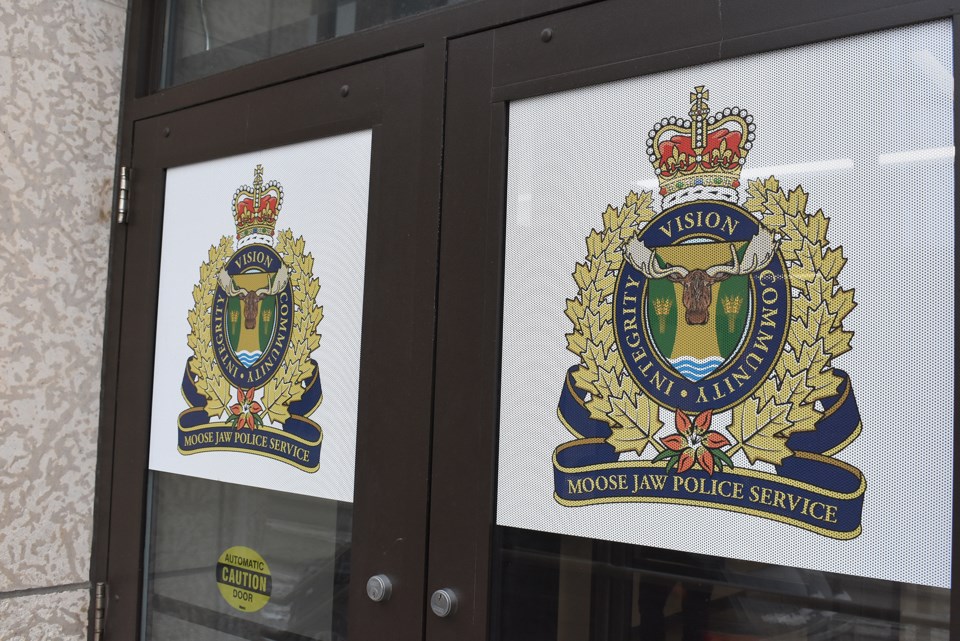The Moose Jaw Police Service (MJPS) and Board of Police Commissioners will have to amend the organization’s budget after city council shot it down because members thought it was too pricey.
During the Dec. 7 budget meeting, council voted 4-3 against the MJPS’s net operating budget request of $11,781,059, of transferring $110,000 from the city’s traffic safety reserve to the organization for 2022 and 2023 for traffic safety initiatives, and its capital budget request of $235,000.
In favour were Councillors Doug Blanc, Heather Eby and Dawn Luhning, while opposed were Mayor Clive Tolley and councillors Jamey Logan, Crystal Froese and Kim Robinson.
Instead, council voted unanimously to refer the budget back to the police board for further review and to consider using funding from the automated speed enforcement reserve and leaving vacant positions unfilled.
“Now what? In my 19 years here I have never had it happen so I’m not sure what the process is because this crew did not send it back to the (Moose Jaw) Police Service,” said Luhning, also the chair of the police board.
The police want an extra $612,933 in net operating funding next year, which equals a 1.84-per-cent increase in municipal property taxes, she pointed out.
One percentage point equals $330,701 in municipal taxation.
The police are facing many pressures that never really stop, she continued. The organization is “looking to simply maintain” its services and needs the requested funding.
Council could use the traffic safety reserve to fund the police budget because that account is for community safety, she added. Considering there will be roughly $450,000 in there by December 2023, council could apply $335,000 and lower the proposed tax hike to 0.84 per cent.
That is possible, but the police board would have to amend the budget because it controls that, said finance director Brian Acker. The board would then have to resubmit the document for approval.
“The only caution with using those funds is that we (don't) have that money available every year. There are certainly other demands on that traffic safety reserve … ,” he added.
Any unused police money — including unspent salaries — goes into the organization's accumulated surplus account.
The police service has an authorized strength of 64 officers, but some positions are vacant — 59 officers are working — and those salaries aren’t being paid, said Froese. Furthermore, it takes a year to train a new member — or longer based on police school spaces — while the organization is still budgeting for those empty positions.
“I’m a strong proponent of them … but I’m also kind of concerned because of the issues Chief (Rick) Bourassa talked about with getting officers into police school and up to speed,” she continued.
While council doesn’t have the power to allocate the police service’s money, Froese thought the organization could put the money into other resources until it reached its full complement. It could then ask for funding next year.
The police are responding to more incidents involving firearms today than 15 years ago, said Blanc, a police commissioner. He pointed out that recent police statistics show there have been 11 assaults on officers this year.
“I wish we wouldn’t have that (weapons) in our city. I remember growing up in our city and never having to worry about that … ,” he continued. “Now it seems to be more and more and more.”
It’s alarming to hear during monthly board meetings about what police face daily, Blanc added, while he wished the public knew more of their struggles.
Logan fully supported the police and agreed that more officers are needed — “the more, the merrier” — including in Crescent Park. However, since the organization completed its budget in October, he thought it could find further savings, especially since not all recruits were training yet.
Eby wished the organization’s requested increase was 1.5 per cent because she would feel more comfortable. Meanwhile, she thought if council asked the police to reduce its budget, then the fire department should do the same thing.
“I don’t think we can ask one department and not the other,” she added. “… I don’t see anything glaring in the police budget.”
The next budget meeting has yet to be determined.




